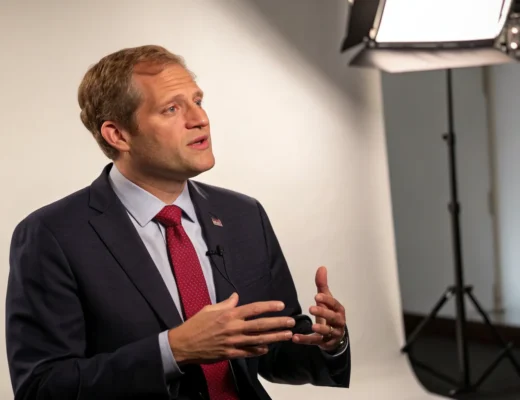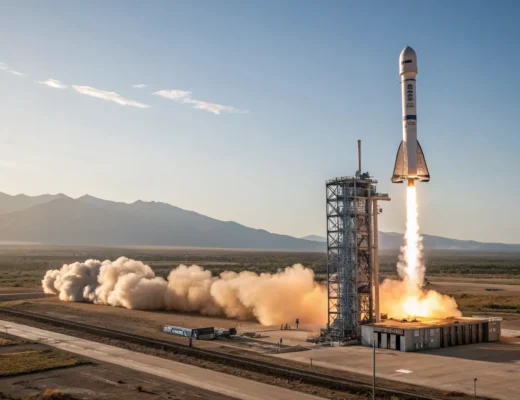Warren Buffett has sold 67% of Berkshire Hathaway’s stake in Apple over the past year. This amounts to more than 615 million shares. Apple remains Berkshire’s largest holding by nearly $25 billion in market value.
During Berkshire Hathaway’s annual shareholder meeting in early May, Buffett suggested that the corporate income tax rate was likely to increase. This may have been a factor in the sale of Apple’s stock. Another possible reason could be Apple’s high valuation.
The company is trading at 38 times its trailing-12-month earnings. Despite being a net seller of stocks in 2024, Buffett and his investment advisors have made some selective purchases. The most significant acquisition was a new position in Domino’s Pizza.
Berkshire Hathaway purchased 1,277,256 shares of Domino’s. This amounts to almost $550 million in market value as of the end of September. Domino’s Pizza has been one of Wall Street’s top performers since its initial public offering in 2004.
Shares have skyrocketed by over 7,000%. The company introduced its “Hungry for MORE” plan last December. This aims to enhance customer loyalty and operational excellence over the next five years.
Buffett admires companies that acknowledge their successes and failures. Domino’s gained significant consumer rapport in the early 2010s with an advertising campaign that admitted past mistakes and emphasized improved product quality. Domino’s has also increased its annual dividend consistently for more than a decade and has repurchased shares regularly.
Although Domino’s forward P/E ratio of 27 is not cheap, its stellar performance makes it an attractive investment. It will be interesting to see if Buffett and his team build on their position in the quarters to come. Warren Buffett has once again signaled caution in the stock market.
For the third consecutive quarter, Berkshire Hathaway’s portfolio has been reduced. This reflects a bearish outlook amidst a roaring bull market. Berkshire’s portfolio value dropped from $280 billion to $266 billion over the quarter.
This is down from $352 billion at the end of 2023. The company did not repurchase its own stock for the first time in six years. This indicates a broader market apprehension as stock valuations continue to rise.
Buffett’s actions are noteworthy given his historical market acumen. Even as the broader market enjoys significant gains, Buffett has been steadily selling off stocks. Over the last few quarters, Berkshire sold seven stocks and bought only three.
There were significant reductions in holdings such as Bank of America, Capital One, Nu Holdings, and Apple. Apple remains Berkshire’s largest holding, but its shares have been dramatically reduced from 915.6 million to just 300 million since the fourth quarter of 2023. These sales have generated approximately $120 billion in cash.
Buffett has cited potential legislative changes and concerns over the national debt as reasons for these moves. At Berkshire’s annual shareholder meeting, Buffett stressed the unavailability of attractively priced acquisition targets. This has driven Berkshire to rotate cash into Treasury bills as a safe haven against potential market downturns.
While the macroeconomic environment shows strong signs, Buffett’s cautious stance serves as a warning to investors. His actions suggest an awareness of inflated stock valuations.
Buffett’s cautious market outlook continues
Buffett’s market moves provide valuable insights. Investors considering new market positions might do well to heed his example and proceed with caution amidst market euphoria. Warren Buffett has recently engaged in a significant sell-off of stocks while amassing a substantial cash reserve.
This investment strategy reflects a cautious approach to a potentially overvalued market. He anticipates a possible economic downturn or correction. Buffett’s Berkshire Hathaway continued to sell more stocks than it purchased during the third quarter of 2024.
The holding company has revealed that it sold approximately 25% of its stake in Apple and divested a total of $36.1 billion in stocks. This included several billion dollars’ worth of shares from Bank of America. It made only $1.5 billion in new investments.
Its cash reserves have grown to an unprecedented $325.2 billion. At present, Buffett seems to be adopting a watchful stance. He is hesitant to commit significant capital until market conditions become clearer.
His wait-and-see approach may stem from current market volatility. The United States Presidential election, ongoing inflation concerns, looming recession fears, and anticipated Federal Reserve rate cuts could be influencing his preference for maintaining substantial cash reserves. This tactic echoes his response during the early stages of past economic uncertainties.
Buffett refrained from major investments due to an uncertain economic landscape. In May, Buffett indicated that he anticipated Apple would continue to be Berkshire’s largest stock investment. However, he decided to sell some shares, believing that the 21% federal tax rate on capital gains was likely to increase.
It appears that capital gains tax rates may not rise under President-elect Donald Trump and a Republican-controlled Congress. Trump has indicated a desire to maintain or potentially lower capital gains taxes as part of his broader tax agenda. Inflation rose in October.
The consumer price index, which tracks the costs of various goods and services, increased by 0.2% for the month. This brought the annual inflation rate to 2.6%. Federal Reserve Chair Jerome Powell stated that the central bank will approach interest rate cuts with caution in the upcoming months.
While inflation is approaching the 2% target, it has not yet reached that level. Powell emphasized that while the path might not be smooth, the Fed will carefully monitor inflation’s trajectory before making any significant monetary policy changes. Economists anticipate the Fed will implement another quarter-point interest rate reduction in December.
This follows a quarter-point cut last week and a half-point reduction in September. However, the trajectory of future rate cuts remains uncertain. Investor uncertainty can trigger widespread consequences for both businesses and their employees.
In such climates, companies often struggle to attract capital or secure new investments. Risk-averse investors typically shy away from ventures they deem uncertain. This can potentially hinder corporate growth and development.
Public companies may experience stock price declines due to investor wariness. This diminishes their market valuation and potentially constrains their ability to raise funds. This uncertainty can lead businesses to delay crucial decisions regarding investments, recruitment, or growth strategies.
Financial strain may force companies to take defensive measures such as implementing hiring freezes, cutting work hours, or resorting to workforce reductions. These actions can create a pervasive sense of job instability among employees. This further exacerbates the economic impact of investor uncertainty.







